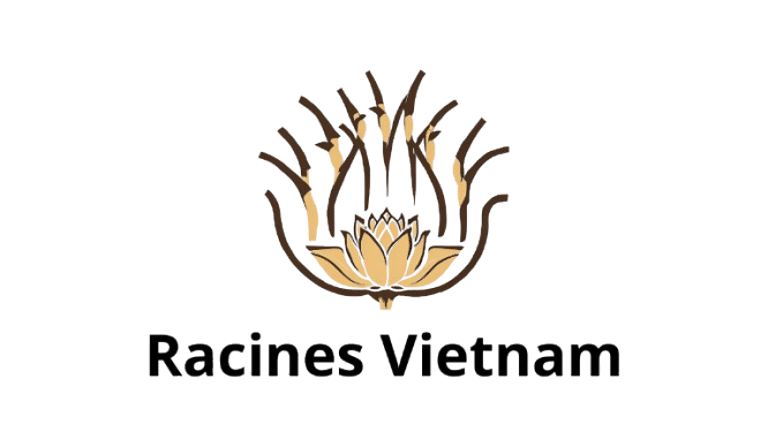“A blog created by an adopted Franco-Vietnamese for all those seeking to reconnect with their origins.”
Vietnamese Names: Meaning, Philosophy & Cultural Roots
Discover the meaning of Vietnamese names: Confucian values, Taoist harmony, ancestral rites, and the deep roots of Chinese and Vietnamese culture.
4/4/20253 min read


Vietnamese Names and Their Meaning
By Racines Vietnam – Updated 2025
A Name in Vietnam: Virtue, Balance, and the Spirit of Ancient China
In Ancient China, a name was not just identification — it was a reflection of one’s role within the cosmos. Vietnamese names, heavily influenced by Chinese philosophy, are living testaments to that legacy. They integrate ideas from Taoism, Buddhism, and Confucian schools of thought, passed down since the Zhou Dynasty, Song Dynasty, and even earlier dynastic eras.
In traditional Chinese civilization, to name was to teach, to govern, to guide. A name held the weight of a ritual, a virtue, a destiny.
Names continue to reflect the teachings of Chinese sages, the harmony of yin-yang symbolism, and the wisdom of ancestors preserved in scripture, classical Chinese texts, and oral folk traditions.
Imperial Influence: Philosophers, Sects, and the Power of Words
From the earliest Chinese philosophers of the Zhou dynasty, to the writings attributed to Lao Tzu and the Analects of Confucius, naming has always been more than symbolic — it is part of moral cultivation.
Taoist sects emphasized wu wei (effortless action), while Buddhist traditions viewed names as part of karmic alignment. Martial scholars, such as those practicing Qigong, saw names as linked to energy flow and physical destiny.
The Song dynasty, in particular, preserved vast collections of commentaries, naming conventions, and classical Chinese literature where a name often served to honor a virtuous path.
Ancient China, Taoism, Buddhism, philosopher, Chinese philosopher, Zhou dynasty, Song dynasty, civilization, sages, attributed to, Analects, school of thought
Name Structure: Ritual Harmony and Yin Yang Energy
Vietnamese names generally follow a tripartite structure:
Family name (ancestral line)
Generational name (shared by siblings)
Personal name (moral or spiritual meaning)
This structure reflects both Confucian moral order and Taoist cosmology. The balance of yin and yang — symbolized in the iconic yin-yang symbol — plays a crucial role in name selection, alongside the calendar cycle, natural elements, and feng shui principles.
Names are often chosen during a ritual ceremony, sometimes involving recitation of classical scriptures or Chinese texts — a tradition still practiced in rural Vietnam and among diaspora families.
yin yang symbol, ritual, feng, practiced, Chinese text, virtues, Taoists, sects, classical Chinese
Philosophical and Spiritual Meaning: Names as Teachings
Vietnamese names reflect ideals and doctrines rooted in Chinese philosophy:
Dao, Thanh, An – peace, clarity, and the path (Taoist)
Minh, Trung, Hiền – clarity, loyalty, kindness (Confucian)
Thủy, Ngọc, Sơn – water, jade, mountain (folk-nature inspired)
Each name is a scriptural echo, often attributed to virtues found in commentaries or philosophers’ writings. Some are directly inspired by the Tao Te Ching, others by folk stories, martial traditions, or seasonal elements like autumn — seen as a time for reflection, legacy, and spiritual maturity.
attributed to, scripture, commentaries, folk, martial, autumn, virtues, teachings, Chinese believe
Cultural Continuity: Names Amidst Change
Despite colonization, communism, and global modernity, Vietnamese names have remained cultural anchors. While Chinese history faced erasures (as during the Cultural Revolution), Vietnam preserved naming as a sacred act of identity and transmission.
Today, Vietnamese names remain connected to:
Ancestor veneration rituals
Taoist and Buddhist sects
Early Chinese school of thought
Influential sages and historians
Naming is still a moment of introspection, rooted in tradition yet open to the future — a way of reconciling ancient Chinese wisdom with modern identity.
ancestors, historian, Chinese religion, Chinese believe, early Chinese, emperor
Testimony
"I was named Minh-Thành, meaning clarity and righteousness. It was chosen during a naming ritual led by a village monk using the Yi-Jing. My grandfather believed names channeled yin-yang harmony, and often read aloud passages from the Analects and Taoist scripture.
He taught me that in Ancient China, a name was more than heritage — it was a compass for the soul."
FAQ – Vietnamese Names and Ancient Chinese Thought
Are Vietnamese names based on Chinese philosophy?
→ Yes. Names are shaped by Confucian, Daoist, and Buddhist doctrines, rooted in Ancient Chinese texts and traditions.
Why are names so ceremonial?
→ Because in Chinese and Vietnamese tradition, a name is part of a ritual meant to align the soul with cosmic balance, ancestral wisdom, and moral duty.
What is the yin-yang influence in names?
→ Many names are chosen based on the yin yang symbol, aiming to balance masculine/feminine, visible/invisible, action/peace — echoing Taoist teachings.
Are these naming traditions still practiced today?
→ Yes. Especially in rural Vietnam, families still consult monks, elders, or follow the teachings of Lao Tzu and other early Chinese philosophers when choosing a name.
Main Menu:
Explorations:
Resources & Immersive Content
Community & Support
Legal & Languages
Contact & Social Networks
✉️ contact@racinesvietnam.com
📱 Instagram | Facebook | YouTube
©️ Copyright
© 2025 RacinesVietnam.com — Tous droits réservés
Site indépendant, créé sans code, hébergé par Hostinger
